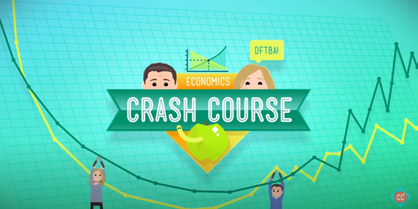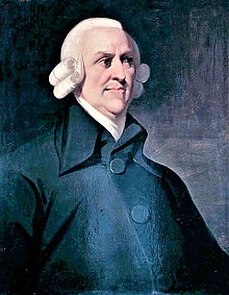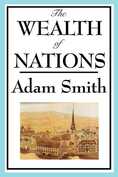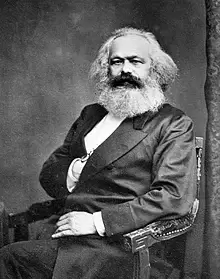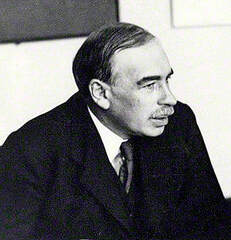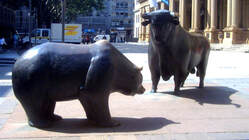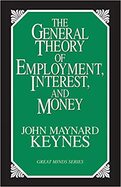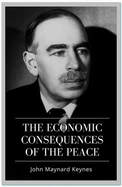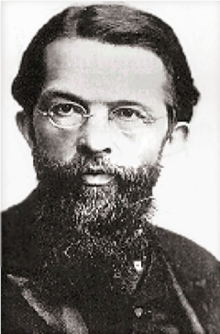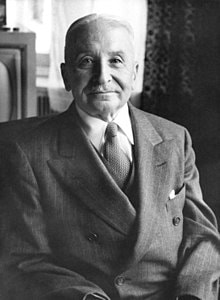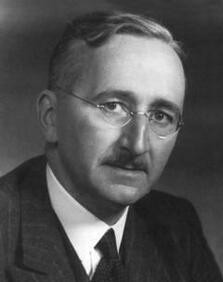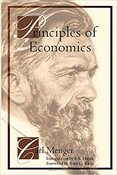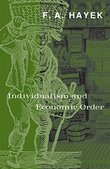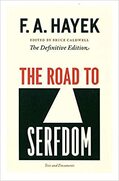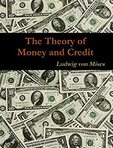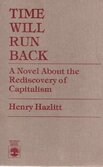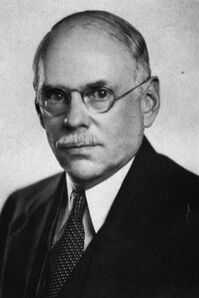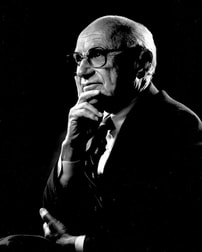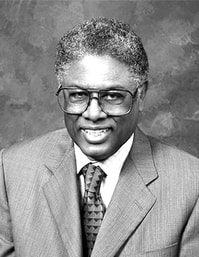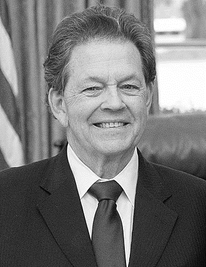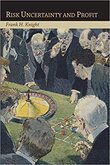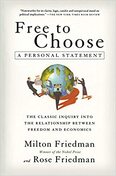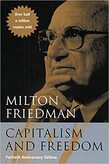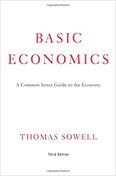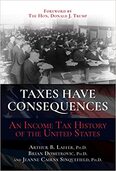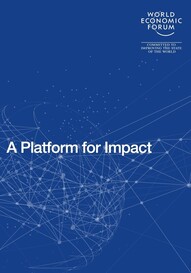Economics
#economics #economy #finance #business #commerce
Other KMN Financial Literacy pages:
ECONOMICS
|
Economics is a social science that studies the production, distribution, and consumption of goods and services. Economics focuses on the behaviour and interactions of economic agents and how economies work. Wikipedia
Guide to Economics
What is Economics?Economics often is considered a dry or “dismal” science. In schools, it is often taught with a focus on abstract supply and demand charts or complicated mathematical formulas. When we think about economics or “the economy,” we think about money, goods, or services — or perhaps
|
What is Economics?The typical first-year student walks into his first economics class with very little idea of what economics is. He might have heard something like, "economics is the study of money", or "economics is another word for accounting", or "economics is hard, don't take that class", but none of those are true. "Economics is the study of the use of scarce resources that have alternative uses." That's the classic definition of economics. Basically, there are people, and people need resources to fulfil their desires. These resources cannot be infinite, but the desires can be, so people need to make choices about how to use their scarce resources. Economists study these choices. All economic questions fall into one of two categories: positive and normative. Positive economics describes "what is" and normative economics argues for what ought to be, so a question like, "why do people use money?" is a positive question and "should people use money?" is a normative question...
What is Economics?
What is economics? What do economists do? This video answers these questions, and more. Additional economic education resources are available at https://www.rba.gov.au/education
|
CrashCourse: Economics
|
In 35 episodes, Adriene Hill and Jacob Clifford teach you economics! This course is based on introductory college level curriculum and the 2015 AP Economics guidelines. By the end of this course, you will be able to: *Identify fundamental economic concepts, principles, or models and describe their similarities, differences, and limitations *Apply economic analyses to everyday life and see economics in real world situations *Discuss economic differences and similarities internationally and the roles played by various governments *Determine the outcome of an economic situation using economic concepts, principles, or models and possible effects changes have on other economic markets
|
Intro to Economics:
|
One Minute Economics
ECONOMIC HISTORY
Economic history
Field of study
Description: Economic history is the academic study of economies or economic events of the past. Research is conducted using a combination of historical methods, statistical methods and the application of economic theory to historical situations and institutions. Wikipedia
Field of study
Description: Economic history is the academic study of economies or economic events of the past. Research is conducted using a combination of historical methods, statistical methods and the application of economic theory to historical situations and institutions. Wikipedia
Why we need to teach economic history - World Economic Forum
03 Nov 2014 by, Simon Ville
Behind every economic policy initiative lies a narrative justifying that course of action: immigration increases unemployment; public debt is unsustainable; manufacturing is interminably declining; city growth is out of control.
We have many “narrators” driving these discussions of economics – the media, political parties, public sector bodies, business and indeed universities – each with their own set of...
03 Nov 2014 by, Simon Ville
Behind every economic policy initiative lies a narrative justifying that course of action: immigration increases unemployment; public debt is unsustainable; manufacturing is interminably declining; city growth is out of control.
We have many “narrators” driving these discussions of economics – the media, political parties, public sector bodies, business and indeed universities – each with their own set of...
Overview Resources:What is Economic History?
History with the people left out? Arid quantification? Or study of the essential motivating force of society? Six historians answer. Paul Adelman | Published in History Today Volume 35 Issue 2 February 1985 Economic HistoryE. Aerts, H. Van der Wee, in International Encyclopedia of the Social & Behavioral Sciences, 2001 Economic History
Economic history suggests that distributional conflicts and the coercive powers of elites and rulers have always played an important role in contracting institutions, just as they have in the security of private property rights. From: Handbook of Economic Growth, 2014 E. Aerts, H. Van der Wee, in International Encyclopedia of the Social & Behavioral Sciences, 2001 YouTube Resources:Economics 101
|
Professional Organizations:EH.Neteh.net
The Economic History Association owns and operates the EH.net website and mailing lists to provide resources and promote communication among scholars in ... Databases · Economic History Association · Book Reviews · MeasuringWorth The Journal of Economic History | Cambridge Core
www.cambridge.org › core › journals › journal-of-eco... The Journal of Economic History is devoted to the study of economic phenomena in historical contexts. It is of interest not only to economic historians but also to ... Learn Liberty
Learn Liberty is your resource for exploring the ideas of a free society. We tackle big questions about what makes society free or prosperous and how we can improve the world we live in. Learn Liberty is powered by Students For Liberty. US Economic History 1 — How Mercantilism Started the American RevolutionLearn Liberty
The British Empire’s mercantilist plan backfired — and led to the American Revolution. Video created with the Bill of Rights Institute to help students ace their exams. This is the first video in a series of nine with Professor Brian Domitrovic, which aim to be a resource for students studying for US History exams, and to provide a survey of different (and sometimes opposing) viewpoints on key episodes in U.S. economic history. How do you think we did?
|
EARLY ECONOMICS
Mercantilism
Mercantilism
mer·can·til·ism /mərˈkan(t)əˌlizəm
noun
belief in the benefits of profitable trading; commercialism.
HISTORICAL
the economic theory that trade generates wealth and is stimulated by the accumulation of profitable balances, which a government should encourage by means of protectionism.
Mercantilism is an economic policy that is designed to maximize the exports and minimize the imports for an economy. It promotes imperialism, tariffs and subsidies on traded goods to achieve that goal. These policies aim to reduce a possible current account deficit or reach a current account surplus. Wikipedia
Mercantilism Definition for KidsMercantilism and Why It Matters for AP US History
Apprend
This expert video- written by Warren Hierl- breaks down the impact of Mercantilism. By Apprend.io : APUSH TV Mercantilism is the economic idea that a country’s wealth is measured by the amount of gold it owns. The goal of mercantilist economic policy is to export more goods than you import, so that you bring more money into the country than you send out to other... |
Mercantilism
NBC News Learn
The economic system of mercantilism is an exchange of raw goods from North America with manufactured goods from England. The practice eventually enrages the colonists, who see it as England's effort to assert its control over the colonies. Current Events:China and the US clash at the WTO – On Mercantilism *Chinese Global Television NetworkCGTN
Last time we spoke about how the US ambassador to the World Trade Organization accused China of being the world’s most protectionist and mercantilist economy.Today, we’ll address the mercantilist accusation and see whether it has any substance. |
The Demand Economy:
Adam Smith & Capitalism
|
Adam Smith
Scottish economist Description: Adam Smith FRSA was a Scottish economist, philosopher, and author as well as a moral philosopher, a pioneer of political economy, and a key figure during the Scottish Enlightenment, also known as ''The Father of Economics'' or ''The Father of Capitalism''. Wikipedia Quotes
|
Capitalism
cap·i·tal·ism /ˈkapədlˌizəm
noun
an economic and political system in which a country's trade and industry are controlled by private owners for profit, rather than by the state.
"an era of free-market capitalism"
Capitalism
Political ideology
Description: Capitalism is an economic system based on the private ownership of the means of production and their operation for profit. Central characteristics of capitalism include private property and the recognition of property rights, capital accumulation, wage labor, voluntary exchange, a price system and competitive markets. Wikipedia
Political ideology
Description: Capitalism is an economic system based on the private ownership of the means of production and their operation for profit. Central characteristics of capitalism include private property and the recognition of property rights, capital accumulation, wage labor, voluntary exchange, a price system and competitive markets. Wikipedia
The Essential Adam Smith: Who is Adam Smith?
The Fraser Institute
Adam Smith (1723 - 1790) is widely hailed as the founding father of what is now known as economics and capitalism, and his 1776 book, An Inquiry into the Nature and Causes of the Wealth of Nations, is often cited as the beginning of both disciplines. Who was Adam Smith, and how did he come to be such an influential figure in the last millennium? Watch this video to find out. To learn more about the ideas of Adam Smith, and to watch more videos like this, visit http://www.essentialadamsmith.org.
Adam Smith: The Grandfather Of Economics
|
POLITICAL THEORY - Adam SmithThe School of Life
Adam Smith was no uncritical apologist for capitalism: he wanted to understand how capitalism could be both fruitful and good. The Real Adam Smith: Ideas That Changed The World - Full Video
The Real Adam Smith: A Personal Exploration by Johan Norberg, takes an intriguing, two-part look at Smith and the evolution and relevance of his ideas today, both economic and ethical. It’s difficult to imagine that a man who lived with horse drawn carriages and sailing ships would foresee our massive 21st century global market exchange, much less the relationship between markets and morality. But Adam Smith was no ordinary 18th century figure. Considered the “father of modern economics,” Smith was first and foremost a moral...
The Wealth of Nations
|
The Command Economy:
Karl Marx (Friedrich Engels)
& Marxism (Socialism-Communism)
|
Karl Marx
Karl Heinrich Marx (5 May 1818 – 14 March 1883) was a German philosopher, economist, historian, sociologist, political theorist, journalist and socialist revolutionary. Born in Trier, Germany, Marx studied law and philosophy at university. He married Jenny von Westphalen in 1843. Wikipedia Quotes
|
Communism
com·mu·nism /ˈkämyəˌnizəm
noun
a political theory derived from Karl Marx, advocating class war and leading to a society in which all property is publicly owned and each person works and is paid according to their abilities and needs.
Communism is a philosophical, social, political, economic ideology and movement whose ultimate goal is the establishment of a communist society, namely a socioeconomic order structured upon the ideas of common ownership of the means of production and the absence of social classes, money and the state. Wikipedia
Who Is Karl Marx?
PragerU
When writing The Communist Manifesto, Karl Marx thought he was providing a road to utopia, but everywhere his ideas were tried, they resulted in catastrophe and mass murder. In this video, Paul Kengor, Professor of Political Science at Grove City College, illuminates the life of the mild-mannered 19th Century German whose ideas led to the rise of some of the most brutal dictators in world history. Communism vs. Socialism: What's The Difference? | NowThis World
NowThis World
There's a lot of confusion surrounding the terms Communism and Socialism. The two are often used interchangeably, even by entire governments and political leaders, but they are not the same at all! So what’s the difference? Find out in this quick explainer! |
POLITICAL THEORY - Karl Marx
The School of Life
Karl Marx remains deeply important today not as the man who told us what to replace capitalism with, but as someone who brilliantly pointed out certain of its problems. Marxism Explained in 2 Minutes
Learn Liberty
“Marx was the greatest social scientist of the 19th century…” says Professor Deirdre McCloskey. “But he got everything wrong.” Thomas Sowell: Marx The Man
|
The Communist Manifesto
|
Capital (Volume 1: A Critique of Political Economy)
|
Colonialism & Imperialism
Colonialism
|
Imperialism
|
|
Colonialism
Description: Colonialism is the policy of a country seeking to extend or retain its authority over other people or territories, generally with the aim of economic dominance. In the process of colonisation, colonisers may impose their religion, economics, and other cultural practices on indigenous peoples. Wikipedia |
Imperialism
Description: Imperialism is a policy or ideology of extending the rule or authority of a country over other countries and peoples, often by military force or by gaining political and economic control. Wikipedia |
Colonization and Imperialism | The OpenBook
theOpenBook
Classroom learning is not only enough for kids, Here TheOpenBook providing printable and online worksheets to help younger kids to learn their alphabets, numbers, shapes, colors and other basic skills. For more info visit our website: http://theopenbook.in/ How did The British Empire rule the World?
|
Colonization of Africa - summary from mid-15th century to 1980Geo History
Let's look at a map and see a summary of the different phases of exploration, conquests and colonization of African territories by European powers, beginning from the mid-15th century. Capitalism Is NOT Imperialism
Although many conflate capitalism and imperialism or think the two systems are closely connected, they are actually quite different, even at odds with one another. Capitalism is a system based on voluntary exchanges that benefit all of the parties involved. In contrast, imperialism is based on exploiting the poor through political power and military force. Prof. Stephen Davies shows that capitalism has been blamed through the years for a number of catastrophes—such as political corruption, exploitation of the poor, mass famines, and others—that were in fact a result of imperialism.
|
MODERN ECONOMIC THEORIES
Keynesian
(John Maynard Keynes)
|
John Maynard Keynes
British economist Description: John Maynard Keynes, 1st Baron Keynes CB FBA, was a British economist, whose ideas fundamentally changed the theory and practice of macroeconomics and the economic policies of governments. Wikipedia Quotes
|
Animal Spirits:
|
POLITICAL THEORY - John Maynard Keynes
The School of Life
John Maynard Keynes was arguably the greatest economist of the 20th century. He discovered the idea that governments should stimulate demand during economic downturns – and was the creator of both the IMF and the World Bank. His ideas continue to underpin a lot of the modern economic system. Keynesian Economics Will Be DeadAustrian Economics and Keynesianism (Keynesian Economics) Explained in One Minute
One Minute Economics
A one minute video which explains what Austrian Economics and Keynesianism are all about. It's a topic that tends to generate heated debates on the Internet and in my opinion, it's important to understand how Austrian Economists as well as Keynesians see the world in order to become better at economics. Gold Standard, Explained
|
The General Theory of Employment, Interest, and Money
|
The Economic Consequences of the Peace
|
Keynes vs. Hayek
"Fear the Boom and Bust"
|
Keynes vs. Hayek: The Ongoing Debate
Dr. Larry White gives an overview of the infamous debate between Keynes and Hayek and their opposed economic philosophies as part of this Tax Foundation University Series, The Evolution of Economic Thought. If you are new to the Tax Foundation’s work, you can learn more about who we are and what we do here: https://taxfoundation.org/impact
Hayek and Keynes - Nicholas Wapshott
Nicholas Wapshott is the author of Keynes/Hayek: The Clash That Defined Modern Economics.
|
The Austrian School
(Carl Menger, Ludwig von Mises, Friedrich Hayek)
Carl Menger
|
Carl Menger
Austrian economist Carl Menger was an Austrian economist and the founder of the Austrian School of economics. Menger contributed to the development of the theory of ...
|
Ludwig von Mises
|
Ludwig von Mises
Economist Description: Ludwig Heinrich Edler von Mises was an Austrian School economist, historian, and sociologist. Mises wrote and lectured extensively on the societal contributions of classical liberalism. He is best known for his work on praxeology, a study of human choice and action. Wikipedia Quotes
|
Friedrich Hayek
|
Friedrich Hayek
Austrian-British economist Description: Friedrich August von Hayek CH FBA, often referred to by his initials F. A. Hayek, was an Austrian-British economist and philosopher who is best known for his defence of classical liberalism. Wikipedia Quotes
|
Austrian Economics vs. Keynesian and Monetarist Macroeconomics | Jonathan Newman
misesmedia
Recorded at the Mises Institute in Auburn, Alabama, on 18 July 2019. Mises University is the world's leading instructional program in the Austrian school of economics. Mises.org/MU19 Why Menger Matters
misesmedia
You probably haven't read Carl Menger's 'Principles of Economics', but you should: it's a groundbreaking work that created a new theory of value and built a foundation for praxeology. Dr. Joe Salerno joins us for the definitive podcast on the founder of the Austrian school. Who Was Ludwig von Mises?
AIERvideo
Economists and historians tell the story of the "Last Knight of Liberalism", economist Ludwig von Mises. Learn more at http://misesvsmarx.aier.org
Promoting the Austrian School of economics, freedom, and peace in the tradition of classical liberalism
What is the Mises Institute? The Mises Institute, founded in 1982, is an educational institution devoted to advancing Austrian economics, freedom, and peace in the classical-liberal tradition. For over 30 years the Mises Institute has provided both scholars and laymen with resources to broaden their understanding of the economic school of thought known as Austrian economics. This school is most closely associated with our namesake, economist Ludwig von Mises. We are the worldwide epicenter of the Austrian movement. I, Pencil: The MovieA film from the Competitive Enterprise Institute, adapted from the 1958 essay by Leonard E. Read. For more about I, Pencil, visit www.ipencilmovie.org
For more than half a century, Leonard Read’s classic story has opened eyes and changed minds by the hundreds of thousands. It humbles even the high and mighty as it reveals the wondrous achievements of individuals whose contributions are coordinated by nothing more than incentives and market prices. This film guarantees that the insights of Read’s humble pencil will continue to work their magic for many years to come!
– Lawrence W. Reed, President, Foundation for Economic Education. Essential Hayek: Who is F.A. Hayek?
The Fraser Institute
This is part of a Fraser Institute project to present the ideas of F.A. Hayek. In this video, we provide an overview of Hayek’s life, his accomplishments, and the events that influenced his thinking. To learn more about the ideas of F.A. Hayek, and to watch more videos like this, visit http://www.essentialhayek.org.
|
POLITICAL THEORY – Friedrich Hayek
The School of Life
The leading theorist of modern right-wing political movements was an Austrian economist called Friedrich Hayek. What Austrian Economics IS
|
The Austrian School select books:
Principles of Economics
|
Human Action: Scholar's Edition
|
Chicago school
Chicago school of economics
Description: The Chicago school of economics is a neoclassical school of economic thought associated with the work of the faculty at the University of Chicago, some of whom have constructed and popularized its principles. Wikipedia
Academics old: Frank Knight, George Stigler
Institution: The University of Chicago
Description: The Chicago school of economics is a neoclassical school of economic thought associated with the work of the faculty at the University of Chicago, some of whom have constructed and popularized its principles. Wikipedia
Academics old: Frank Knight, George Stigler
Institution: The University of Chicago
Frank Knight
|
Frank Knight
American economist Description: Frank Hyneman Knight was an American economist who spent most of his career at the University of Chicago, where he became one of the founders of the Chicago school. Nobel laureates Milton Friedman, George Stigler and James M. Buchanan were all students of Knight at Chicago. Wikipedia Quotes
|
Milton Friedman
|
Milton Friedman
American economist Description: Milton Friedman was an American economist who received the 1976 Nobel Memorial Prize in Economic Sciences for his research on consumption analysis, monetary history and theory and the complexity of stabilization policy. Wikipedia Quotes
|
Thomas Sowell
|
Thomas Sowell
American economist Description: Thomas Sowell is an American economist, social theorist, and senior fellow at Stanford University's Hoover Institution. Born in North Carolina, Sowell grew up in Harlem, New York. He dropped out of Stuyvesant High School and served in the Marine Corps during the Korean War. Wikipedia Quotes
|
Arthur Laffer
|
Arthur "Art" Laffer
Arthur Betz Laffer is an American economist and author who first gained prominence during the Reagan administration as a member of Reagan's Economic Policy Advisory Board. Wikipedia Quotes
|
Economics: The Austrian School vs. The Chicago School
I look introduce these two schools of economic thought and analyze their similarities and differences.
Essential Milton Friedman: Who was Milton Friedman
The Fraser Institute
Milton Friedman was an American economist who, despite his humble origins, rose to become one of the most influential economists of the 20th century. A Nobel Laureate, Friedman revolutionized the way economists think about consumption, money, stabilization policy and unemployment. Watch this video to learn more about Friedman's life and work.
Milton Friedman on Keynesian EconomicsAustrian vs Chicago EconomicsWalter Block (Official)
A lecture by Professor Walter Block about the differences between the Austrian and Chicago schools of economic thought. Thomas Sowell - Basic Economics
Recorded on December 14, 2010 Thomas Sowell has studied and taught economics, intellectual history, and social policy at institutions that include Cornell University, UCLA, and Amherst College. Now a senior fellow at the Hoover Institution, Sowell has published more than a dozen books, the latest of which is a revised and updated edition of his classic volume, Basic Economics. "Through its various editions," Sowell writes, "the fundamental idea behind Basic Economics remains the same: Learning economics should be as uncomplicated as it is informative." Here, Sowell seeks to uncomplicate some of the economic issues confronting the country today, from the financial crisis and the role of the Fed to the economics of health care and trade imbalances.
|
Schools of Thought in Classical Liberalism, Part 1: Introduction
Learn Liberty
What is "classical liberalism?" Is it a specific set of beliefs, a philosophy, an economic theory, or something else? In this series, Dr. Nigel Ashford explores what classical liberalism -- sometimes called "libertarianism" -- actually means. Dr. Ashford looks at 5 different schools of classical liberalism/ libertarianism, and examines how they are similar and how they are different. Dr. Ashford hopes that as you explore this series, you will think deeply about your own beliefs and political philosophy, and draw your own conclusions.
The Power of Ideas: Milton Friedman and Chicago Economics
Milton Friedman was one of the greatest economists of the 20th century. His continuing influence results from the power of his ideas—ideas built on the twin pillars of sound economic theory and careful empirical analysis. We invite you to join University of Chicago President Robert J. Zimmer, professors Gary Becker and Lars Hansen, and Research Scholar Scott Kominers in a discussion of the lasting impact of Milton Friedman and the University of Chicago's Becker Friedman Institute. Learn more about at http://bfi.uchicago.edu.
Thomas Sowell on the Origins of Economic Disparities
|
|
The Chicago School: How the University of Chicago Assembled the Thinkers Who Revolutionized Economics and Business
by Johan Van Overtveldt 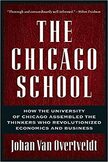
When Richard Nixon said “We are all Keynesians now” in 1971, few could have predicted that the next three decades would result in a complete transformation of the global economic landscape. The transformation was led by a small, relatively obscure group within the University of Chicago’s business school and its departments of economics and political science. These thinkers — including Milton Friedman, Gary Becker, George Stigler, Robert Lucas, and others — revolutionized economic orthodoxy in the second half of the 20th century, dominated the Nobel Prizes awarded in economics, and changed how business is done around the world. Written by a leading European economic thinker, The Chicago School is the first in-depth look at how this remarkable group came together. Exhaustively detailed, it provides a close recounting of the decade-by-decade progress of the Chicago School's evolution. As such, it's an essential contribution to the intellectual history of our time.
Risk Uncertainty and Profit
|
Capitalism and Freedom
|
The Future...
A Modern Monetary Policy (Stakeholder Capitalism)?
A Centralized Global Economy?
The Great Reset?
Stakeholder Capitalism
|
Stakeholder Capitalism - Investopedia
Stakeholder capitalism is a system in which corporations are oriented to serve the interests of all their stakeholders. "Shareholders vs Stakeholders Capitalism" by Fabian Brandt ...
by F Brandt · 2016 · Cited by 24 — With the growth of the economies worldwide the debate between shareholder and stakeholder capitalism has never been more intense than nowadays. What is Stakeholder Capitalism? Here's a Definition, and 4 Ways to Make It a RealityTo solve big, global problems, companies must rethink capitalism and how they collaborate, argues Mariana Mazzucato, professor in the economics of innovation and public value at University College London.
Stakeholder Capitalism: Building the Future | DAVOS AGENDA 2021
Join TIME’s Editor-in-Chief, Edward Felsenthal, for this special launch session and discussion of “Stakeholder Capitalism”, the new book by Klaus Schwab, Founder and Executive Chairman, World Economic Forum. The year 2021 will be pivotal for the future of humankind, from tackling COVID-19 to climate change. What role can stakeholder capitalism play in the pursuit of a more sustainable, resilient and inclusive global economy? Speakers: Edward Felsenthal, Mariana Mazzucato, Klaus Schwab, Alexander De Croo, Angelique Kidjo, Dan Schulman
Global elites are pushing for ‘stakeholder’ capitalism…here’s what that means.
The far-left and global elites continue to push for the ‘Great Reset’ — a plan supported by the World Economic Forum as a way to recover from the COVID pandemic and to also combat additional crises, like climate change. Part of that plan includes a transition to stakeholder capitalism — but, what does that actually mean? Glenn discusses the idea with Justin Haskins, Editorial Director of the Heartland Institute. To see their full interview and Glenn’s full TV episode on the Great Reset, head to BlazeTV.com now.
STAKEHOLDER CAPITALISM EXPLAINED: World Economic Forum's RADICAL plan is happening NOWIn a video played at the 2021 Davos Agenda yesterday, Marc Benioff, CEO of SaleForce.com, said that capitalism as we know it is “dead.” Glenn explains WHY elites pushing for The Great Reset are so desperate to enact a new kind of economic AND government system: stakeholder capitalism. And, HINT, it’s not because giant corporations suddenly care so much about the environment, climate change, OR you.
Stakeholder Capitalism Gets a Report Card. It's Not Good
Marc Benioff, chief executive of the technology giant Salesforce, presents himself as an evangelist for stakeholder capitalism: the idea ... The Dangers of 'Stakeholder Capitalism' - National Review
Aug 25, 2020 — The Dangers of 'Stakeholder Capitalism' ... In effect, its advocates are insisting that corporate money and power should be conscripted to force ... Making Stakeholder Capitalism a Reality - Harvard Business ..
Jan 22, 2020 — Stakeholder capitalism, a popular management theory in the 1950s and ... or run the risk of getting uncomfortable answers foisted upon them. |
Why Stakeholder Capitalism Will Fail - Forbes
Jan 5, 2020 — Stakeholder capitalism—the notion that a firm focuses on meeting the needs of all its stakeholders: customers, employees, partners, ... Stakeholder Capitalism Gets a Report Card. It's Not Good.
Dec 2, 2020 — Marc Benioff, chief executive of the technology giant Salesforce, presents himself as an evangelist for stakeholder capitalism: the idea ... What is the stakeholder theory ? by R. Edward Freeman | ESSEC ClassesOn the occasion of the IIES annual conference, the ESSEC Chair for Social entrepreneurship, along with the Center for Capitalist, Globalization and Governance were pleased to invite R. Edward Freeman, University Professor at the Darden School of Business; Elis and Signe Olsson Professor of Business Administration and foremost expert on issues related to stakeholder engagement and corporate ethics. Subscribe to our channel for more videos: http://bit.ly/AbonnementESSEC
Stakeholder Capitalism: What Is Required from Corporate Leadership? | DAVOS 2020
With shareholder primacy giving way to a broader vision for stakeholder-driven capitalism, how can business leaders rebuild public trust and deliver on a new mandate? Speakers: Jim Hagemann Snabe, Klaus Schwab, Ginni Rometty, Marc Benioff, Feike Sybesma, Brian T. Moynihan The World Economic Forum is the International Organization for Public-Private Cooperation. The Forum engages the foremost political, business, cultural and other leaders of society to shape global, regional and industry agendas. We believe that progress happens by bringing together people from all walks of life who have the drive and the influence to make positive change.
Capitalism The Great Debate - Stakeholder v ShareholderJoin Professor A. Lucian Bebchuk of the Harvard Law School and Professor Colin Mayer, CBE of Saïd Business School, Oxford as they debate one of the great controversies in business today – should it be governed and run for shareholder or stakeholder interests? Poll - https://www.menti.com/35fj9fnmjy
Larry Fink Says Stakeholder Capitalism Is the Way Forward
Nov.18 -- BlackRock Chairman and Chief Executive Officer Larry Fink tells Carlyle Co-Executive Chairman David Rubenstein that the shareholder capitalism model is becoming more popular within company board rooms. They speak during Bloomberg’s New Economy Forum.
'We have to act' on stakeholder capitalism, Western Union CEO saysWestern Union CEO Hikmet Ersek weighs in on the top themes at this year's World Economic Forum in Davos.
|
The Great Reset
Wikipedia
The Great Reset is the name of the 50th annual meeting of the World Economic Forum, held in June 2020. It brought together high-profile business and political leaders, convened by Charles, Prince of Wales and the WEF, with the theme of changing society and the economy following the COVID-19 pandemic.
The Great Reset is the name of the 50th annual meeting of the World Economic Forum, held in June 2020. It brought together high-profile business and political leaders, convened by Charles, Prince of Wales and the WEF, with the theme of changing society and the economy following the COVID-19 pandemic.
|
There is an urgent need for global stakeholders to cooperate in simultaneously managing the direct consequences of the COVID-19 crisis. To improve the state of the world, the World Economic Forum is starting The Great Reset. The World Economic Forum is the International Organization for Public-Private Cooperation. The Forum engages the foremost political, business, cultural and other leaders of society to shape global, regional and industry agendas. We believe that progress happens by bringing together people from all walks of life who have the drive and the influence to make positive change.
THE CONTEXT
The Covid-19 crisis, and the political, economic and social disruptions it has caused, is fundamentally changing the traditional context for decision-making. The inconsistencies, inadequacies and contradictions of multiple systems –from health and financial to energy and education – are more exposed than ever amidst a global context of concern for lives, livelihoods and the planet. Leaders find themselves at a historic crossroads, managing short-term pressures against medium- and long-term uncertainties. Now is the time for a 'great reset'
To achieve a better outcome, the world must act jointly and swiftly to revamp all aspects of our societies and economies, from education to social contracts and working conditions. Every country, from the United States to China, must participate, and every industry, from oil and gas to tech, must be transformed. In short, we need a “Great Reset” of capitalism. |
WARNING: The Great RESET Of 2021 EXPLAINED! | Minority Mindset
The Great Reset - The Fed Says "The Economy As We Know It Might Be Over" 0:00 - Video starts 0:40 - The current economic situation 2:52 - Our how economy works 7:29 - What’s coming in the economy 9:58 - The Great Reset 15:20 - Another round of lockdowns?
Kim Iversen: The Great Reset, Global Elites Claim “You Will Own Nothing And Be Happy”
Kim Iversen explains what 'The Great Reset' is. About Rising: Rising is a weekday morning show with bipartisan hosts that breaks the mold of morning TV by taking viewers inside the halls of Washington power like never before.
Conspiracy theories aside, there is something fishy about the ...
'The Great Reset' conspiracy theories don't seem to want to die. The theories were triggered by the World Economic Forum's (WEF) summit last ... The Great Reset Conspiracy Smoothie - The Intercept
Great Reset is an attempt to create a plausible impression that the huge winners in this system are on the verge of voluntarily setting ... Introducing the 'Great Reset,' world leaders' radical plan to ...
For decades, progressives have attempted to use climate change to justify liberal policy changes. But their latest attempt – a new proposal ... |
World Economic Forum
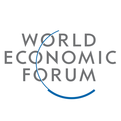
The World Economic Forum, committed to improving the state of the world, is the International Organization for Public-Private Cooperation.
www.weforum.org What is the World Economic Forum?
Read World Economic Forum institutional brochure:The is the International Organization for Public-Private Cooperation.
The Forum engages the foremost political, business, cultural and other leaders of society to shape global, regional and industry agendas. It was established in 1971 as a not-for-profit foundation and is headquartered in Geneva, Switzerland. It is independent, impartial and not tied to any special interests. The Forum strives in all its efforts to demonstrate entrepreneurship in the global public interest while upholding the highest standards of governance. Moral and intellectual integrity is at the heart of everything it does. Our activities are shaped by a unique institutional culture founded on the stakeholder theory, which asserts that an organization is accountable to all parts of society. The institution carefully blends and balances the best of many kinds of organizations, from both the public and private sectors, international organizations and academic institutions. We believe that progress happens by bringing together people from all walks of life who have the drive and the influence to make positive change. Read the latest Annual Report here. Find out about our Foundation Regulations and Statutes. Our Story | World Economic Forum
The World Economic Forum is the International Organization for Public-Private Cooperation. The Forum engages the foremost political, business, cultural and other leaders of society to shape global, regional and industry agendas. We believe that progress happens by bringing together people from all walks of life who have the drive and the influence to make positive change.
World Economic Forum Website ► http://www.weforum.org/ Facebook ► https://www.facebook.com/worldeconomi... YouTube ► https://www.youtube.com/wef Instagram ► https://www.instagram.com/worldeconom... Twitter ► https://twitter.com/wef LinkedIn ► https://www.linkedin.com/company/worl... TikTok ► https://www.tiktok.com/@worldeconomic... Flipboard ► https://flipboard.com/@WEF #WorldEconomicForum #Davos Stakeholder Capitalism Metrics: Common Reporting & Disclosures | Sustainable Development Summit 2020
Jan 10 - Episode Description: The fifth and final episode of the #StakeholderCapitalism video-podcast has arrived.
This week we ask, what if economies aimed for more than just short term profits and readdressed their role in society and accountability to stakeholders? What about 'Stakeholder Capitalism'? Guests:
COVID-19: The Great Reset
Since it made its entry on to the world stage, COVID-19 has torn up the existing script of how to govern countries, live with others, and take part in the global economy in a dramatic way. Professor Schwab and CEO and Founder of the Monthly Barometer Thierry Malleret explore these disruptions in their new book, COVID-19: The Great Reset.
|
Fact check: The World Economic Forum does not have a ..
Feb 25, 2021 — False. The World Economic Forum does not have a stated goal to have people 'own nothing and be happy' by 2030. Its Agenda 2030 framework ... Dec 21, 2021 Fact Check-The World Economic Forum is not planning to take ... May 4, 2021 More results from www.reuters.com
Economic Growth And Social InclusionLong Term Investing, Infrastructure And DevelopmentInternational Trade And InvestmentEmployment, skills and educationAgriculture and Food SecurityEnvironment And Natural Resource SecurityThe Future Of The Global Financial System |
